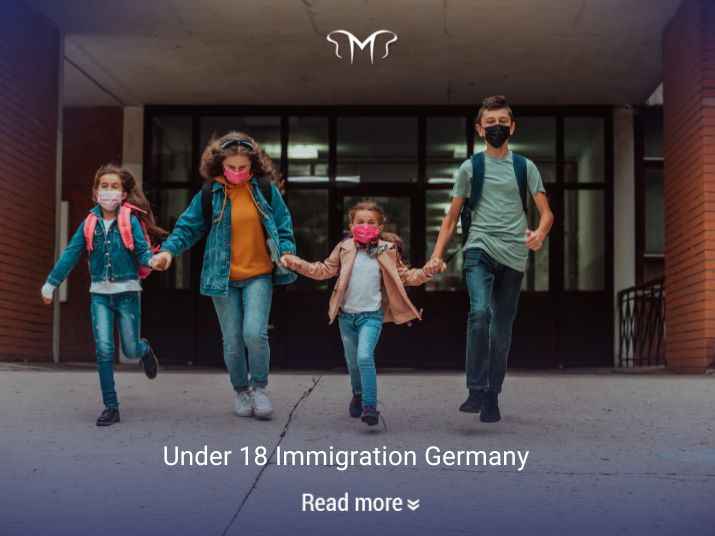
Under 18 Immigration Germany: A Growing Trend
Under 18 immigration Germany has become a popular option for young students and their families seeking better educational and life opportunities. Many students under 18 wish to immigrate to Germany to benefit from its high-quality education system. However, obtaining a student visa and completing the immigration process can be complex. This article will explore under 18 immigration Germany, covering requirements, benefits, challenges, and educational opportunities in the country.
Conditions for Under 18 Immigration Germany
Under 18 immigration Germany typically occurs through student visas or family reunification visas. Applicants must provide essential documents such as a valid passport, school acceptance letter, language proficiency certificate, parental consent letter, and proof of financial means. Understanding the specific requirements is crucial for ensuring a smooth immigration process.
Why Under 18 Immigration Germany is Attractive?
Many young individuals choose under 18 immigration Germany for various reasons:
-
Access to free public education with high academic standards
-
Exposure to diverse languages and cultures
-
Early adaptation to a new environment
-
Opportunities for permanent residency and future career prospects
Advantages of Under 18 Immigration Germany for Education
Under 18 immigration Germany provides numerous benefits, including:
-
Free education in public schools
-
High-quality educational system
-
Access to world-class universities
-
Health insurance coverage (What is student insurance in Germany and what are its types?)
-
Affordable cost of living
-
Skill development opportunities
-
Safe and high-quality living conditions
Challenges of Under 18 Immigration Germany
Despite its benefits, under 18 immigration Germany has some challenges:
-
Legal restrictions
-
Complex bureaucratic procedures
-
Inability to work while studying
-
High living costs in certain cities
-
Cultural and social adaptation difficulties

Methods of Under 18 Immigration Germany
There are several pathways for under 18 immigration Germany:
Student Visa for Under 18 Immigration Germany
One of the main routes for under 18 immigration Germany is obtaining a student visa. Students can apply for a school visa to enroll in German schools. Required documents include a valid passport, school admission letter, proof of financial resources, and language proficiency certificates.
Family Reunification Visa for Under 18 Immigration Germany
Another option for under 18 immigration Germany is the family reunification visa, which allows parents or legal guardians to bring their children to Germany. This visa ensures that families can stay together while benefiting from Germany’s education system.
Asylum Route for Under 18 Immigration Germany
Some underage individuals immigrate to Germany as unaccompanied refugees. They are placed in refugee camps and undergo age verification processes before their asylum applications are considered. This method carries significant risks and is not recommended.

Education System for Under 18 Immigration Germany
Germany’s education system is structured to support under 18 immigration Germany. Education starts at age six and is mandatory for at least nine years. Primary education lasts until age ten, after which students enter secondary school. The system emphasizes both academic and practical training, preparing students for future careers.
International Schools for Under 18 Immigration Germany
International schools in Germany offer an excellent option for under 18 immigration Germany. These schools provide bilingual education, fostering cultural integration and academic excellence. Tuition fees range from €15,000 to €20,000 per year, depending on the school and level of education.
Comparison: International vs. Public Schools in Germany
For under 18 immigration Germany, families must choose between public and international schools. Public schools are free and teach in German, offering the Abitur diploma for university entrance. International schools, while tuition-based, provide bilingual instruction and smaller class sizes, making them an attractive option for many.
Requirements for Studying in Germany Under 18
Under 18 immigration Germany requires students to meet specific conditions:
-
Obtain a student visa
-
Provide identity and financial documents
-
Obtain parental consent
-
Demonstrate language proficiency (German for public schools, English for international schools)
-
Cover monthly living expenses (€800–€1,000)
Student Residency and Citizenship Through Under 18 Immigration Germany
Students immigrating under 18 immigration Germany need a student visa, which remains valid for their study duration. After completing their education, students can extend their stay through job opportunities or higher education. Long-term residency and citizenship require legal residence for at least five years, German language proficiency, and a clean criminal record.
Top International Schools for Under 18 Immigration Germany
Germany hosts several prestigious international schools for under 18 immigration Germany, including:
-
Frankfurt International School – Established in 1961, offering advanced learning facilities and extracurricular activities.
-
Bonn International School – Established in 1997, providing multilingual education with annual fees between €3,000 and €10,000.
-
International School of Hamburg – Established in 1957, offering high academic standards and internationally recognized diplomas.
Admission Process for International Schools in Germany
To gain admission under 18 immigration Germany, students must:
-
Select a suitable school based on age, language skills, and location.
-
Gather necessary documents (passport, previous academic records, health certificates, etc.).
-
Translate documents into German.
-
Submit application forms.
-
Pass interviews or entrance exams if required.
-
Receive final acceptance and complete visa procedures.

Medical Studies for Under 18 Immigration Germany
Pursuing medical studies under 18 immigration Germany requires:
-
Completion of a high school diploma
-
Proficiency in German (B2 or C1 level)
-
Passing medical entrance exams
-
Enrolling in preparatory college (for non-EU students)
-
Meeting visa and accommodation requirements
Benefits of Early Medical Education in Germany
Under 18 immigration Germany for medical studies offers:
-
High academic standards
-
Free or low-cost tuition
-
Globally recognized degrees
-
Early career opportunities
-
Exposure to diverse medical training environments
Conclusion
Despite the complexities, under 18 immigration Germany presents numerous opportunities for young students. The country’s outstanding education system, future career prospects, and quality of life make it an ideal destination for families seeking a better future. By understanding the process and requirements, under 18 immigration Germany can be a life-changing experience for young individuals and their families.


